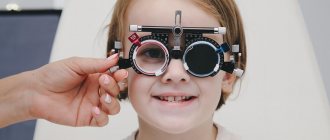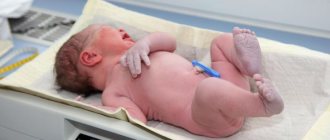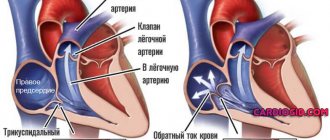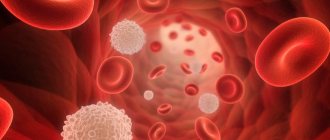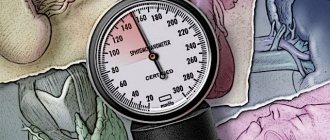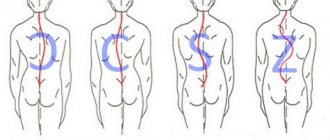Article:
Mental retardation (oligophrenia, dementia) is a specific condition caused by a special level of activity of the central nervous system, and not a mental illness.
It is chronic, non-progressive and occurs in connection with organic pathology of the brain. The affected central nervous system limits the intellectual development of the child. As a rule, such a deviation occurs during intrauterine development and is finally formed before three years of age.
Due to various types of brain damage that provoked the breakdown of mental functions, a person can develop oligophrenia even in adulthood. This is called dementia. It should be distinguished from acquired dementia, which refers to a decrease in intelligence due to age-related changes in the brain.
Mental retardation is classified as a severe pathology. However, depending on the form of its development, a specialist can adapt the patient to the surrounding society as much as possible and correct some deficiencies.
CLASSIFICATION OF CU
There are several degrees of this pathology, determined by IQ:
- mild (moronicity) – IQ 69–50. This form is characterized by slight developmental retardation, which allows a person to socialize in the surrounding society;
- moderate (not pronounced imbecility) – IQ 49–35. Such patients have basic communication skills, are able to understand gestures and respond to them, but it is difficult to understand them when they are worried;
- severe (severe imbecility) – IQ 34–20;
- deep (idiocy) - IQ less than 20. It is characterized by practically undeveloped speech, lack of instincts and primitive reactions. Among the additional manifestations you can notice the following: low or complete lack of coordination of movements, apathy, unjustified malice, anger, etc.
Moronicism is, in turn, divided into three more forms (depending on IQ):
- light – 69–65;
- moderate –64–60;
- heavy – 59–50.
Mental retardation, characterized by a decrease in intelligence, disorders of speech and motor development, and emotional and volitional spheres, is a very common disease. In the world, there are from 1 to 3% of people suffering from this disease. The fact that 75% of them have a mild form can “calm down.”
Quite often, this pathology is combined with other quite serious mental and somatic diseases: Down's disease, cerebral palsy, epilepsy, autistic disorders, blindness, deafness, etc.
UL cannot progress, but with a mild degree, timely educational measures and teaching methods can even increase intelligence.
REASONS FOR APPEARANCE
As mentioned above, brain damage and structural defects are to blame for underdevelopment of the brain. There are the following main groups that determine the presence of a control system:
- hereditary diseases (chromosomal and genetic);
- intrauterine infections - toxoplasmos, rubella and others that negatively affect the fetus;
- maternal consumption of toxic substances, alcoholic beverages, strong drugs, radiation, smoking;
- fetal prematurity;
- problems during childbirth and in the first months of a child’s life - oxygen starvation, mechanical head injuries, infectious diseases;
- lack of normal upbringing, training and socialization, the impossibility of full-fledged brain function as a result of this;
- unknown etiology.
SIGNS OF MILD UR
Mental underdevelopment with decreased intelligence, congenital or acquired, can be noticed in very young children, three years old. However, the diagnosis is made no earlier than the child reaches seven years of age.
Signs of mental retardation in newborns are almost impossible to detect, especially its mild form. But then this will manifest itself in developmental delays and difficulties in adapting to kindergarten. It is difficult for a child to communicate with peers, find a common language with them, maintain a daily routine, master new skills, and absorb knowledge. He cannot sit in one place, gets tired quickly, does not show any desire to understand the world, and is inattentive.
A child may have a similar but passing problem - mental retardation. The difference is that a child with mental retardation is not always able to learn a new skill, while a child with mental retardation still learns it after several repetitions.
This is why it is so important to detect the symptoms of MR early in order to begin corrective measures immediately. Here they are:
- Abnormal motor development. The baby begins to hold his head up late, tries to sit up, stand up, and walk. His grasping reflex is impaired, he is unable to hold a toy, and a little later, a spoon.
- The processes of excitation and inhibition are unbalanced - the baby is overly impulsive, irritable, or excessively lethargic and slow.
- Belated babble. He begins to speak with a significant delay or there is no speech at all. The child is not able to speak coherently, as it is difficult for him to construct a sentence. He does not understand what is being said to him, so he cannot fulfill even basic requests.
- Poor emotional-volitional sphere, self-isolation, lack of interest in what is happening around.
- There is no interest in toys, their incorrect use prevails, preference is given to primitive games.
- There is no abstract thinking, that is, logic, mathematical and creative abilities.
A few words should be said about emotions: the child experiences grief and joy, hostility and sympathy, is sad and happy, but all this is expressed very weakly, not in many ways.
Outwardly, such a child is no different from his peers. But his inability to concentrate properly leads to learning difficulties.
Children with a mild degree of ID are afraid of a change of environment and are highly dependent on their parents and educators. Difficulties in recognizing emotions create problems with communication, so kids withdraw into themselves. But it is also possible that they draw attention to their person in different ways, often very awkward.
Such individuals are well aware that they are different from healthy people, so they take measures to conceal their problem. Many people manage to gain self-care skills, although this happens more slowly than their peers. The school period is especially difficult for them, since writing, reading and mathematics are difficult for them.
Signs of retardation
The disease is accompanied by extensive symptoms. The most pronounced symptoms of debility will be the patient’s inability to develop complex concepts, think abstractly and make generalizing conclusions. In children with debility, a visual-figurative type of thinking is observed. Namely, they are not able to perceive events as a whole. Even if they correctly perceive the images, they can hardly find connections between them, and also cannot compare them with each other.
In addition to mental retardation, such children also often experience speech underdevelopment. In particular, they have slow speech, inertness, and poor vocabulary. Even if children are able to navigate well in ordinary everyday situations, they still have limitations in abstract thinking and generalization. Patients can have either a very friendly and calm character, or an angry, vindictive character.
Children with mental retardation find it extremely difficult to study at school, since they have too difficulty understanding spelling rules, are practically unable to retell the text they have just read, and cannot figure out assignments on their own. The most difficult thing for these children is mathematics. However, it is worth remembering that among children with various forms of debility there are many partially gifted individuals. These can be children with absolute pitch, artistic talents, excellent memory, and the ability to do mental math.
Moronism also negatively affects the formation of personality. Patients have poor development of volitional, moral and aesthetic qualities, as well as limited needs for cognition. In this regard, children are not able to form their own judgments, so they often imitate others and adopt other people's views. This is a rather dangerous consequence of debility, since due to weakness of will, the inability to form one’s own opinion and defend it, patients can become an obedient tool for other people. Without understanding the consequences of their actions and following other people's orders, they can commit dangerous crimes.
FEATURES OF CHILDHOOD DEMENTIA
Preschool age only forms a personality, which is characterized by many factors: developmental characteristics, temperament, individuality.
Only after the child goes to school can parents identify a developmental disorder. Such children practically do not master the program. It is not possible to attract the attention of oligophrenics and fix it on something. Difficulties arise with memorization and retelling—children suffering from ID are unable to retain received information in memory for a long time.
A “special” student usually does not understand the essence of the task and does not grasp the connections between things and phenomena. It is very easy to intimidate him in such a situation: you just have to shout, and the psychological trauma that follows the stress is inevitable.
Depending on the environment, such a child can develop into two completely different personality types:
- kind and sympathetic, ready to help at any moment, vulnerable and warm-hearted;
- embittered and aggressive, who, having no desires and feelings of their own, are subject to the negative influence of others.
A practicing psychotherapist shared the story of a boy who was doomed to mental illness while still in utero development. A dysfunctional mother carried a child in violation of all acceptable rules: she smoked, drank alcoholic beverages, and took psychotropic drugs. After the birth of the child, he was deprived of proper attention.
After some time, the visiting nurse noticed some mental underdevelopment of the baby: he could not hold his head up on his own and did not make any sounds. Thanks to the prompt and coordinated work of medical workers, the boy was saved. And at the moment it has practically adapted to modern living conditions.
A predisposition to mental illness or unacceptable behavior of a pregnant woman is a reason to warn her about the possible dementia of the unborn child.
However, a loving and caring mother who leads a healthy lifestyle and has absolutely no prerequisites for the occurrence of mental pathologies can also face the problem of dementia in her child.
Having noticed the first alarm bells, which are a definite reason for consultation, you must immediately contact a qualified specialist. This will give you the opportunity to deeply adapt your baby to society before the moment of his socialization.
DIAGNOSTICS
Mental development disorders are difficult to detect at an early stage. However, such diagnosis is extremely necessary for early correction and compensation of the detected defect.
The diagnosis of “mental retardation” is made on the basis of special methods that allow assessing the intellectual level of an individual. Sometimes specialists use neuropsychological diagnostics, which allows us to determine the level of development of higher mental functions, as well as assess the child’s potential.
A correctly made diagnosis makes it possible to timely develop corrective methods to eliminate the pathology and treat it. In this case, the doctor must make sure that the little patient does not have signs of progression of underdevelopment or signs of more serious mental illnesses (schizophrenia, schizoaffective disorder, etc.).
It is also important to determine that the patient’s condition is not pedagogical neglect. This often happens to children who have lost their parents and were sent to an orphanage. There they can be subjected to harsh treatment, bullying, violence, etc. But if the child changes the situation for a better one - he is adopted, he lives and is raised in a normal family, then his condition returns to normal.
Treatment for debility
Patients who have been diagnosed with debility must be registered with a neuropsychiatrist. If the cause of the disease is complications of endocrine diseases, the patient should also be observed by an endocrinologist.
Treatment begins with determining the cause of the disease, since the doctor’s tactics depend on it. For example, children with toxoplasmosis or congenital syphilis are prescribed etiotropic drugs. Patients with fermentopathy are prescribed a special diet. In case of endocrinopathy, hormonal therapy is prescribed.
To eliminate the manifestations of the disease, the patient is prescribed symptomatic therapy, including the following drugs:
- psychotropic;
- dehydration;
- anticonvulsants;
- general strengthening;
- neuroprotectors;
- metabolites;
- nootropics.
In case of asthenia and excessive fatigue, the patient is prescribed amphetamine, which stimulates the mental sphere. For children who exhibit excessive emotional excitability, the doctor prescribes Elenium, aminazine, and haloperidol.
In addition to symptomatic therapy, patients also need corrective treatment, including speech therapy, pedagogy, and psychological areas. A child needs this treatment because it allows him to learn better, acquire knowledge and skills necessary to solve everyday situations, and develop independence. Speech therapy involves correction of stuttering and correction of systemic speech underdevelopment.
PREVENTION AND TREATMENT
In order to prevent the development of mental retardation in the womb, pregnant women who have an unfavorable history (physiological indicators, predisposition) are recommended to undergo a more thorough examination. Doctors place women under special observation who suffered from viral diseases during pregnancy.
Birth injuries received by newborns, as well as infectious diseases they suffered at an early age, can lead to brain damage.
A child with mild mental retardation has the opportunity to develop and learn within the limits of his biological capabilities. This pathology is incurable, but its timely and competent correction will make it possible for such a person to become a full-fledged member of society, albeit with limited abilities. A special role in this case is played by the environment and perception. There is no doubt that such people require increased attention.
Mental retardation requires close contact with loved ones, teachers, doctors, and psychologists. The doctor selects specialized institutions for children with mental development problems taking into account the child’s capabilities and abilities. Additionally, the psychotherapist can prescribe medication support using pharmacological drugs. Medical and educational measures and labor training for the mentally retarded show good results.
It is always important to remember that any mental illness is not a death sentence. The main thing is to contact a specialist in time, who will help make your stay in society as comfortable and fruitful as possible for the patient.
In the case of mild oligophrenia, experts give a relatively favorable prognosis. This applies to cases not burdened with concomitant psychopathological and somatoneurological disorders. People with such deviations are quite capable of mastering certain types of professions, can adapt to independent living, and even create families.
Causes of debility
Debility can occur due to the influence of the following etiological factors:
- Genetic diseases characterized by manifestations of mental retardation. These include Angelman syndrome, Down syndrome, and Prader-Willi syndrome. These diseases are caused by a violation of the structure of chromosomes and genes, and are also manifested by physical underdevelopment.
- Brain injury during childbirth. For example, injury may occur due to compression of the baby's head with obstetric forceps or due to intracranial hemorrhage in the event of a birth injury.
- Insufficient amount of iodine in the diet of a child aged from birth to three years.
- Lack of upbringing and communication in the first years of a baby’s life, due to which the initial resources of the brain are not actively used. If this is the reason that provoked the debility, then with adequate treatment, a positive effect is observed, as well as a favorable prognosis for the child.
- Impact of harmful factors on the body of a pregnant woman. Such factors include ionizing radiation (for example, frequent x-rays for a pregnant woman), infectious diseases (cytomegalovirus infection, rubella, syphilis, toxoplasmosis), iodine deficiency in the body, chemical agents (drugs, alcohol, household toxins), gross violation of the prescribed diet, or malnutrition.
CORRECTION
It is impossible to completely cure mental retardation, even in a mild form, since organic brain damage is irreversible. But it can easily be corrected by child psychiatrists and teachers at specialized schools. Special programs have been developed, based on concrete and visual methods, to help children acquire simple skills and the ability to demonstrate compensatory capabilities.
Training takes place at a slow pace, familiar to the patient. As a result, the patient can freely adapt to the surrounding space and respond appropriately to its changes.
The neurocorrectional assistance program takes into account the child’s neuropsychological characteristics and strengths. It allows you to develop:
- fine motor skills, coordination and motor skills;
- visual-motor coordination - strengthen the muscles of the eyes and the tracking movements of the latter, which is necessary for reading and writing, establish communication between the eye and hand;
- stable connections between the hemispheres of the brain to increase the speed of processing sensory information;
- attention, self-control;
- functions of thinking, spatial perception, ability to construct coherent speech and logical-grammatical construction;
- concept of wrong behavior;
- auditory perception of speech and non-speech sounds, the ability to differentiate tempo-rhythmic patterns.
In some cases, to achieve your goals, there may be a need for a speech therapist, speech pathologist, or neurologist.
Treatment
In the treatment of the disease, the main attention is paid to a variety of trainings and educational programs. While maintaining verbal skills, sessions of individual, group and family psychotherapy are conducted, aimed at increasing self-esteem, eliminating feelings of helplessness and inferiority. The technique of modeling social roles has a good result.
Drug therapy is used mainly for the correction of concomitant somatic diseases (for example, dysfunction of the endocrine system, cerebral hypoxia) and mental disorders. Neuroleptics and tranquilizers are prescribed in short courses during periods of exacerbation of psychosis.
Also, to improve memory , attention, and assimilation of new material, nootropics, vasodilators, and amino acids are used. Some drugs for the treatment of Alzheimer's disease (in particular, Memantine) have a good effect.
For inpatient and outpatient treatment of debility in children, please contact our clinic by phone 8(969)060-93-93.


